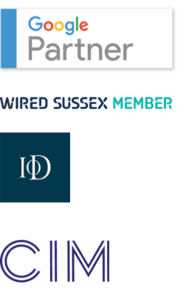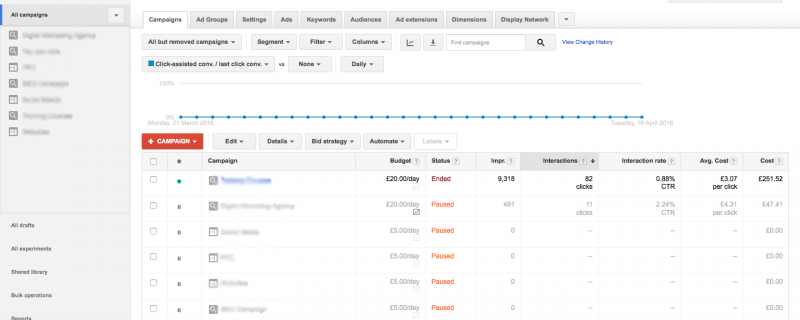Possum Update
Why! This could be big.
Possum! has arrived locally to you. Well done Google! Here is the inside track on the local effects of the Possum search update now that we have had a little time since its arrival…….
…….with Google’s core search engine also being updated.
The effects of the Possum Update have seen a 59% increase in local SERP results in the Google algorithm changes affecting Google local pack traffic. The changes represent a huge impact on local search results but also a slight change in the search engine at a national results level. So what?
Democratisation of the web that’s what, and that is a big deal especially if you are a smaller business. The impact really is great news for smaller businesses (which is nice to see) at the local level – where it was increasingly hard to see local traffic get visibility due to the dominance of the big ‘national brands’. This has surely got to be good news for regional businesses. We are holding our breath for further increases in local results with ever increasing relevance.
Carrying on the theme of significant search updates beginning with a ‘P’ is Penguin and Panda, the latest iteration has been named ‘Possum’ by the search community. One of our fun tools is the MozCast which is a superb indicator that things are a churn in the Google algorithms.
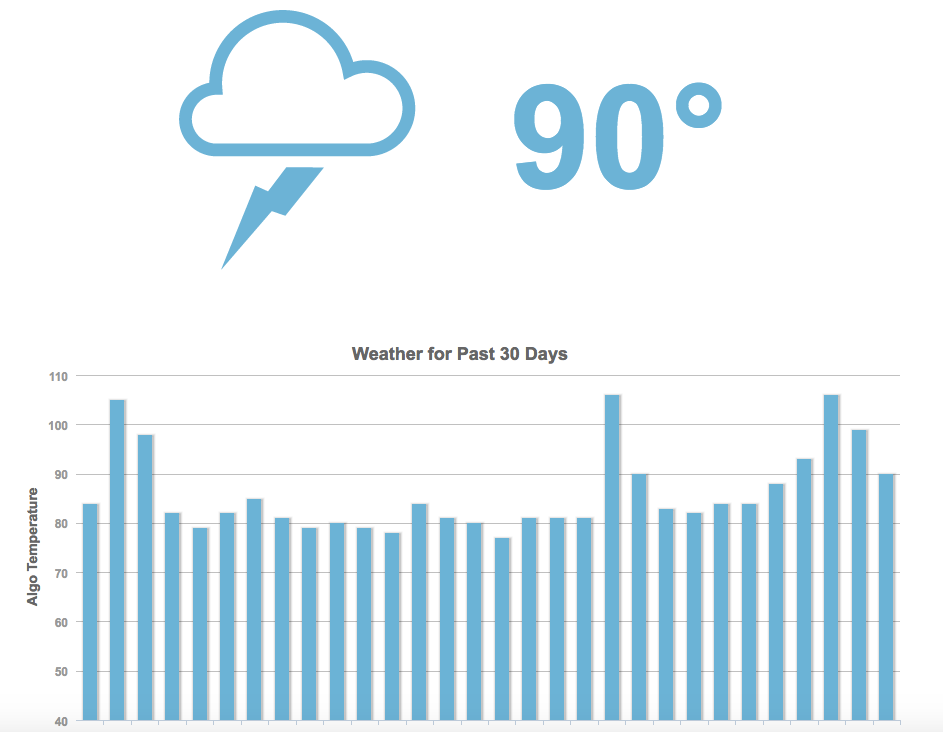
The impacts are pretty much rolling out and have gradually been effecting search results over the past month. The Domain Diversity is fantastic as it shows the growing number of domains present in search and that has got to be a good thing for the web. The domain diversity is now showing a higher preference of local results according to the great results shown in the Mozcast Domain diversity figures.
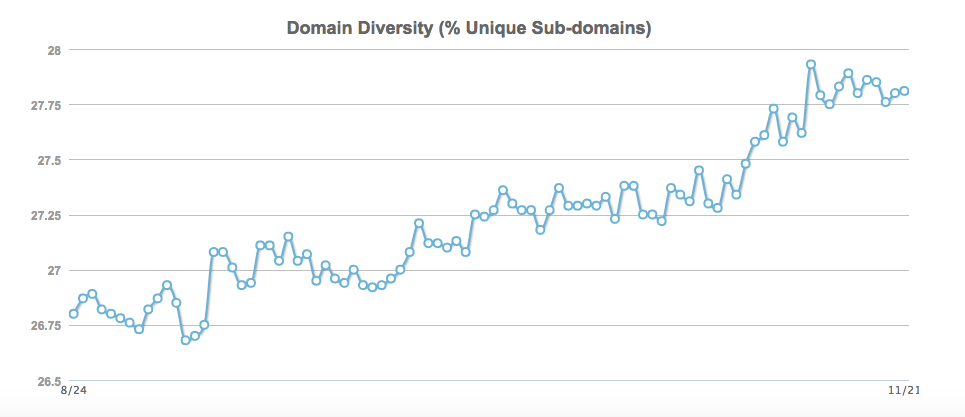
The Local/Map results contain the largest impact in movement and change in Search Results. The reduction in desk top organic SERP results to between 7 and 9 results on page 1 and the removing of the adverts on the right hand side of the SERP’s page in early 2016 versus the increase in advertising has helped increase Google ad revenues. However the increase in the local pack results will be a welcome benefit for local businesses.
We looked at a random subject area – ‘garages in Brighton’ and the following came up in the results pages.

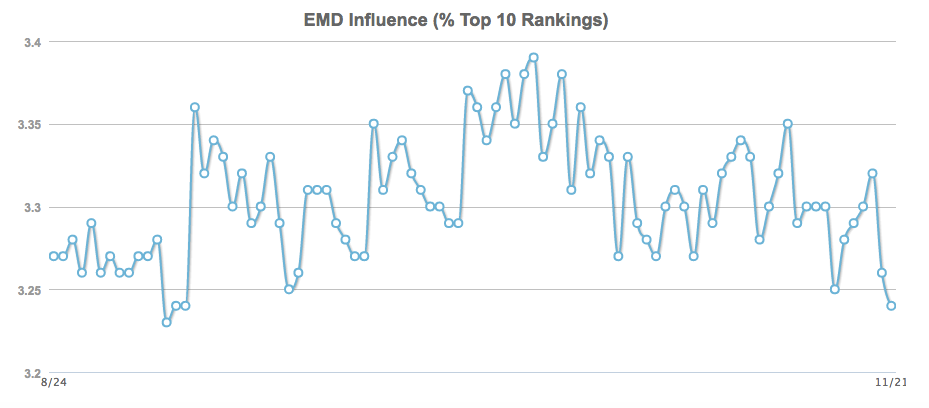
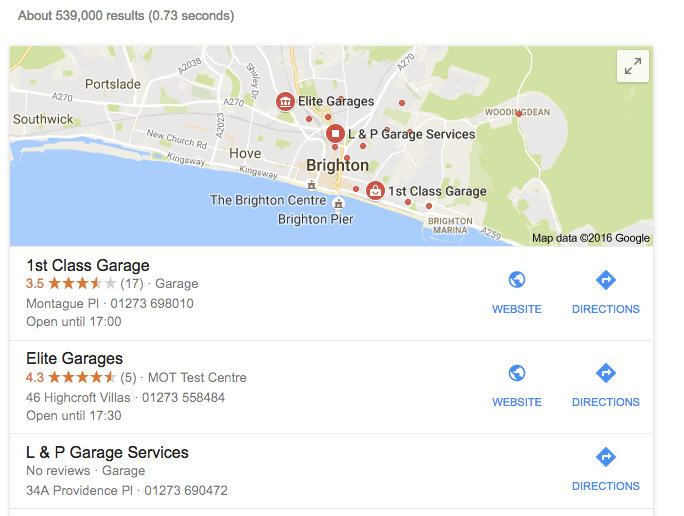
Standard results page with mapping at the top. We swapped the use of ‘local’ and also added ‘Brighton’ to the end of the search. The results either placed the ads before the Map in 80% of cases or at the very top of the page. The extended ‘More places’ we think has got bigger, but what we really notice is the resultant map that appears following this has a lot more businesses. We then repeated this for other service functions for B2C companies and then swapped out for B2B.
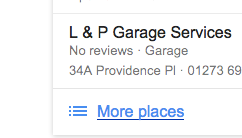

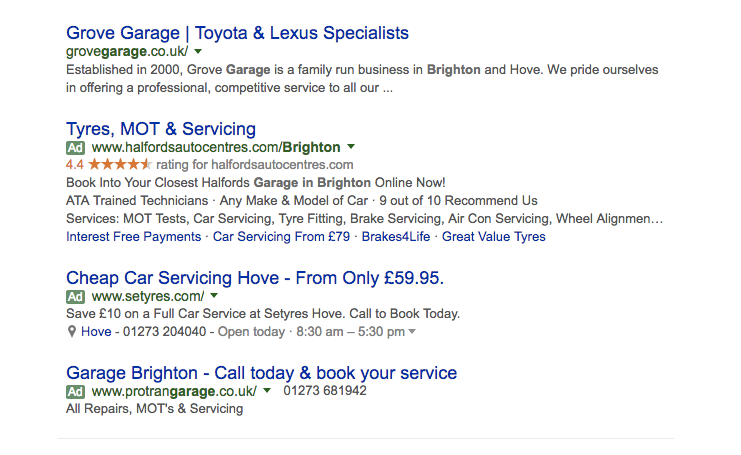 The advertising that sits at the bottom has pushed the results on the organic SERPS which used to be firmly 10 down to an average of 7. These 3 ‘missing’ places have been replaced by the adverts you see at the bottom of the page. OK this started to happen back in April this year when the right hand advertising block disappeared from Google only to be added to the top and bottom of the page.
The advertising that sits at the bottom has pushed the results on the organic SERPS which used to be firmly 10 down to an average of 7. These 3 ‘missing’ places have been replaced by the adverts you see at the bottom of the page. OK this started to happen back in April this year when the right hand advertising block disappeared from Google only to be added to the top and bottom of the page.
So Google local search has got better for the user and for businesses locally. What we are constantly amazed by is the local businesses that were still not using Google + , Google My Business. With the ever increasing search by Google for relevance it seems mad that this does not happen more.
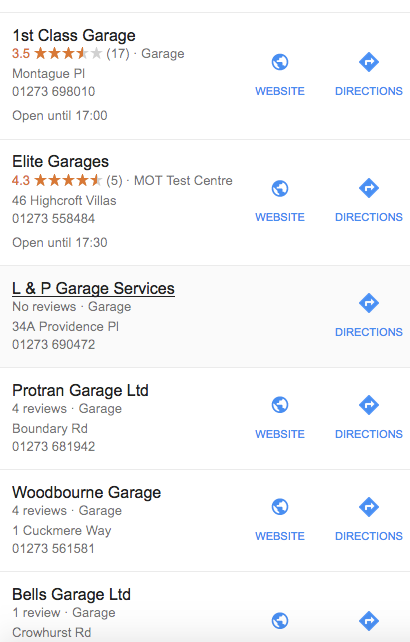 We wanted to find a little more about the Microsoft side of the story by talking to Bing ourselves to get their take on all the changes in SERPS in the Bing search engines.
We wanted to find a little more about the Microsoft side of the story by talking to Bing ourselves to get their take on all the changes in SERPS in the Bing search engines.
Read next time our interview with Bing for information on how the local search results are changing from a Microsoft perspective.
For more on another big Google update, check out Stuart’s post on the Penguin 4.0 update. Or see how we can help your Search Engine Optimisation, taking into account the most recent algorithm changes.


